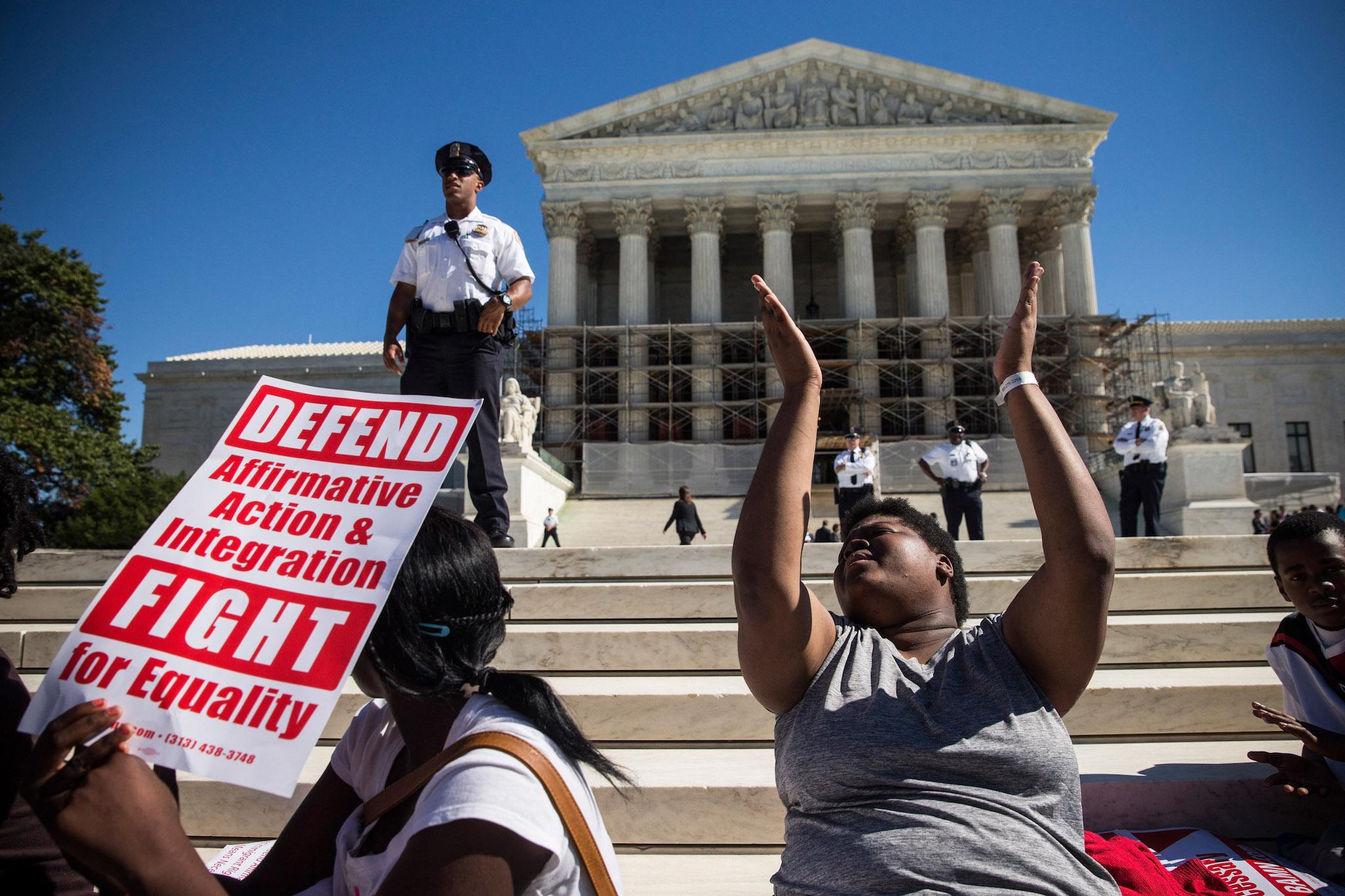Trump administration 'could sue over discrimination against whites by universities', civil rights activists fear
Race-conscious affirmative action policies have been used for decades in undergraduate admissions

Donald Trump’s Justice Department is receiving backlash from civil rights groups for its reported proposal to investigate and sue US universities over admissions policies it finds discriminate against white applicants.
The revelation is the latest signal that the department under Attorney General Jeff Sessions is trying to reorganise the priorities of its civil rights division, which has already taken action to change Obama administration policies on gay rights and ballot access.
Kristen Clarke, the president of the liberal Lawyers’ Committee for Civil Rights Under Law, has suggested that the possible project aimed at attacking affirmative action policies is “misaligned with the [civil rights] division’s longstanding priorities.”
Ms Clarke told the New York Times that the division was “created and launched to deal with the unique problem of discrimination faced by our nation’s most oppressed minority groups.”
The division’s website states that it “works to uphold the civil and constitutional rights of all Americans, particularly some of the most vulnerable members of our society.”
According to a document obtained by the Times, the civil rights division is seeking current lawyers interested in working on “investigations and possible litigation related to intentional race-based discrimination in college and university admissions.”
Officials have said, according to the Washington Post, the project will not operate out of the division’s Educational Opportunities Section – which is run by career civil servants that normally handle work involving universities – but instead in the front office of the division, where Mr Trump’s political appointees work.
This could imply that the person leading the initiative would be carrying out a political agenda rather than just focusing on enforcing anti-discrimination laws for education.
“By assembling a team of attorneys in the front office of the Civil Rights Division to focus on so-called 'intentional race-based discrimination', this Justice Department is laying the groundwork to attack policies that help promote racial diversity at colleges and universities,” Ms Clarke said in a statement.
Justice Department spokeswoman Sarah Isgur Flores could not confirm the project to the Independent.
A Justice Department official said the document obtained by the Times was a personnel posting.
“It does not reflect a new policy or programme or any changes to longstanding DOJ policy. Whenever there's a credible allegation of discrimination on the basis of race, the department will look into it,” the official said.
Race-conscious affirmative action policies have been used for decades in undergraduate admissions. But the practise of considering race when deciding whether to admit someone into a school has come under fire in recent years.
The controversial orders Donald Trump has already issued
Show all 9Supporters of affirmative action assert that such policies help disadvantaged minority groups – particularly African-Americans and Latinos – have better access to a college education at institutions they would otherwise be unable to attend.
Meanwhile, opponents argue it is a form of reverse discrimination, and that past discrimination against certain minority groups does not justify present discrimination against non-minorities. All people are equal under the laws of the US, they say.
Candice Jackson, acting head of the Education Department’s Office for Civil Rights, wrote in 2005 that affirmative action policies dismiss “the very real prices paid by individual people who end up injured by affirmative action.”
But Sherrilyn Ifill, president and director-counsel of the NAACP Legal Defence and Educational Fund, has different views.
“Affirmative action is rooted in our nation’s fundamental commitment to equality, a commitment this Administration woefully lacks and has expressed hostility towards,” she said in a statement, adding that her organisation “will bring the full force of the law if this Justice Department attempts to resegregate our institutions of higher learning.”
John King, president and CEO of the Education Trust and former education secretary under Mr Obama, said in a statement that “diversity benefits communities, schools, and students from all backgrounds, especially those historically-underserved.”
“This is a principle affirmed by the Supreme Court and well understood in the higher education sector and business world,” Mr King added.
While rejecting blunt racial quotas or race-based point systems, the Supreme Court has determined there are benefits to universities having diverse student bodies that justify using race as one factor among many in a “holistic” evaluation of college applications.
In holistic reviews, schools consider all facets of an application, including history of overcoming hardship or ability to contribute to diversity on campus, instead of just looking at harder data such as test scores or grade point averages that might eliminate otherwise qualified minority applicants.
Most recently, the Supreme Court held in a 4-3 decision that a race-conscious admissions policy at the University of Texas was constitutional. But lawsuits challenging similar policies at other high-profile institutions, including Harvard University and the University of North Carolina, and still pending. Both cases allege that race-conscious admissions policies have resulted in discrimination against Asian American applicants.
Justice Clarence Thomas – the second African American to serve on the high court – has famously opposed affirmative action, writing that the “worst forms” of racism have “always been accompanied by straight-faced representations that discrimination helped minorities.”
Subscribe to Independent Premium to bookmark this article
Want to bookmark your favourite articles and stories to read or reference later? Start your Independent Premium subscription today.

Join our commenting forum
Join thought-provoking conversations, follow other Independent readers and see their replies